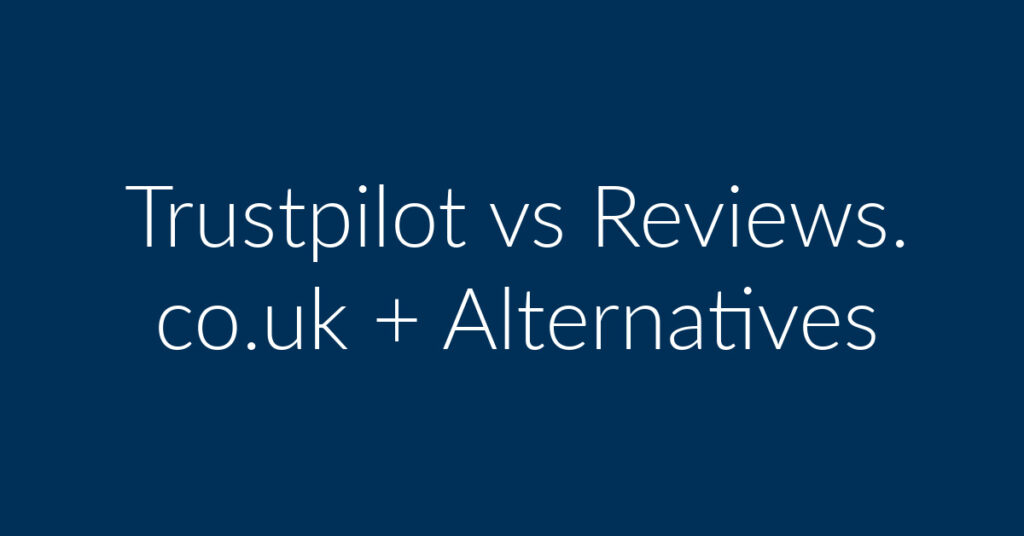How should businesses handle negative reviews? With the abundance of review sites available online, it can be overwhelming to determine which platforms are most effective for managing online feedback.
Proper managing online reviews requires a strategic approach that not only addresses negative feedback but also optimizes the overall review management process. Let’s dive in deeper.
Maximize Your Online Presence by Claiming Free Business Listings
When it comes to managing online reviews, one of the most effective strategies is to claim or create as many free business listings as possible. Customers leave feedback across a wide range of platforms, so ensuring your business is represented on these sites is crucial for maintaining a strong online presence. Here are some of the most important platforms where you should establish your business:
There are countless other platforms where your business can be listed, and each one offers unique opportunities to engage with customers and manage your online reputation. Since these listings are free, there’s no downside to claiming your spot on these platforms. By doing so, you ensure that your business is accessible to a broader audience, increasing the chances of receiving valuable feedback and building a positive online reputation.
Claiming your business listings not only helps you manage reviews more effectively but also enhances your visibility and credibility, ultimately driving more traffic and sales to your business.
Assign a Dedicated Staff Member to Manage Online Reviews
One of the most common mistakes businesses make is underestimating the importance of online reviews.
With over 90% of consumers consulting reviews before making a purchase, it’s clear that managing your online reputation should be a top priority. To truly leverage the power of customer feedback, consider dedicating a staff member specifically to handling reviews.
Having a dedicated person for this role can yield significant benefits. For instance, research has shown that businesses that improve their Yelp rating by just one star can see a profit increase of 5 to 9 percent.
This illustrates the direct impact that positive reviews can have on your bottom line.
Selecting the Right Person
Managing customer feedback requires a unique set of skills. The individual you appoint should possess exceptional communication abilities, a high degree of patience, and the capacity to remain calm and professional, even when faced with negative comments. It’s not uncommon to encounter challenging customers, and how you respond to their feedback can make or break your reputation.
The internet is full of examples where businesses have mishandled customer reviews, leading to public relations disasters. To avoid this, ensure that the person in charge of reviews is well-trained in conflict resolution and understands the importance of empathy and tact when dealing with all kinds of feedback.
Make It a Priority to Respond to as Many Reviews as Possible
At the outset, you should aim to respond to every review you receive. This is the ideal scenario in managing online reviews, as people appreciate feeling acknowledged and valued. When customers see that you take the time to respond to their feedback, they’re more likely to return and continue doing business with you.
However, the ideal isn’t always achievable. Unless your business handles only a small number of customers, responding to every review may not be feasible without a dedicated team. For larger businesses or those with a high volume of reviews, such as popular sellers on platforms like Amazon, responding to each review can become overwhelming.
In these cases, it’s important to focus on responding to customer queries rather than every single review. Queries often require immediate attention and resolving them can have a direct impact on customer satisfaction and retention.
While responding to every comment might not be realistic, prioritizing responses to customer inquiries and addressing negative feedback can go a long way in maintaining a positive relationship with your audience. Balancing this approach helps ensure that customers feel heard, while also managing the workload effectively.
Mastering the Art of Managing Negative Reviews
Negative reviews are an inevitable aspect of running a business, especially in today’s digital age. Instead of dreading them, it’s important to embrace negative feedback as an opportunity for growth and improvement. When faced with a negative review, the worst thing you can do is ignore it or respond in a defensive or hostile manner. Engaging in a heated exchange with a dissatisfied customer only exacerbates the situation and can harm your reputation further.
The most effective way to handle negative reviews is to view them as a chance to demonstrate your commitment to customer satisfaction. Believe it or not, consumers expect to see some negative feedback when researching a product or service. A mix of positive and negative reviews can actually lend credibility to your business. If all you have are glowing reviews, potential customers might start to question their authenticity.
To manage negative reviews effectively, start by reaching out to the dissatisfied customer privately, if possible. Address their concerns with empathy and offer a solution that resolves the issue quickly. This not only helps to mend the relationship but also shows other potential customers that you are proactive and care about your clients’ experiences.
Once you’ve resolved the issue, kindly ask the customer to update their original review to reflect the resolution. This approach can turn a negative experience into a positive one and may even convert a disgruntled customer into a loyal advocate for your brand.
Simplify the Review Process
Most customers aren’t naturally inclined to leave reviews, especially positive ones. Typically, people are more motivated to share their experiences when they’re dissatisfied, which can result in a skewed perception of your business.
To balance this, it’s crucial to make the process of leaving reviews as easy and convenient as possible. Encourage satisfied customers to share their positive experiences by sending them gentle reminders after their purchase. You can also offer incentives, like discounts on future purchases, to motivate them to leave a review.
By making it simple and rewarding for customers to provide feedback, you can gather a more accurate representation of your business and enhance your online reputation.
Automate the Review Collection Process
To efficiently collect reviews, consider automating the process. Like Amazon, which sends reminders to customers after their purchases, your business can benefit from a similar approach. Automated systems make it easy to consistently gather feedback without manual effort.
There are various platforms available that can help you streamline and automate the review collection process. For instance, tools like Shopper Approved not only automate review requests but also enhance your online presence by integrating star ratings into Google Ads and boosting organic traffic. By automating this process, you ensure a steady flow of reviews, which can significantly improve your online reputation and visibility.
Final Words
Managing online reviews can be a daunting task, especially for those who lack the expertise to navigate this crucial aspect of business reputation. The feedback left by customers across various platforms plays a vital role in shaping public perception, and while positive reviews can boost a business, negative feedback presents unique challenges.



